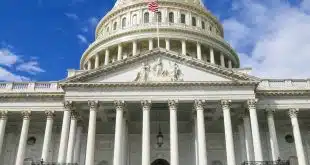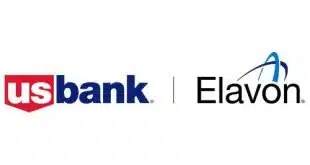It’s the hottest trend in online credit. The rewards outweigh the risks for most consumers and merchants.
Buy Now Pay Later (BNPL) is a payment option that allows customers to make purchases at stores and online without paying the complete amount upfront. Similar to the layaway programs of the past, BNPL enables consumers who may not have a credit card or the funds to pay for a desired item(s) at the moment of purchase to spread out their payments.
While already popular overseas, BNPL received a boost in the United States during Covid-19, as it provided cash-strapped consumers the ability to make partial payments upfront and then over a short time span. BNPL has also grown in popularity particularly with Gen Z and Millennials who may not have credit cards. It also is more popular with larger-ticket items that would typically be financed through payments made on traditional credit cards by carrying the balance.
eMarketer Insider Intelligence found that many U.S. adults favor BNPL services over credit cards, with 44% of those who recently used the former preferring it when making purchases. The study also found that this figure varies across income brackets. Preference for BNPL solutions is strongest among respondents earning $50,000 to $99,999 annually, and drops significantly among those making $100,000 or more.
What does this all mean for payments providers, retailers, and consumers? Let’s take a look at each segment in turn.
Payments Providers
The rapid escalation in BNPL use has driven a surge in the market overall, including Square’s agreement to acquire Afterpay for $29 billion and PayPal picking up Paidy for $2.7 billion. And BNPL options like Klarna, Affirm, and others are quickly growing as well.
Unlike the case with credit card companies, much of BNPL businesses’ revenue comes from merchants. They charge retailers a small fee on all transactions processed through their platforms.
As BNPL becomes more popular in the United States, we expect to see a continued shift away from card payments for transactions. To combat this market erosion, card companies are entering the fray. Mastercard, for example, recently launched a BNPL service, its Mastercard Installments program.
With this new service, Mastercard said that banks, lenders, fintech firms, and wallets will have the ability to offer BNPL solutions. Mastercard also said that customers will be able to access such offers digitally, pre-approved through the lender’s mobile-banking app or through instant approval during checkout. This program will initially launch in partnership with five U.S. banks and other participating companies.
Visa is piloting a card-based BNPL offering in the U.S. market, while Citizens Bank offers a Citizens Pay option.
Also, after announcing in December 2020 that it would no longer allow cardholders to settle third-party BNPL debts with its credit cards, Capital One shifted gears. Its chief executive told analysts that the company would be beta testing a version of its own BNPL product.
Retailer Appeal
So, what does this rapid growth and consumer interest mean for retailers? They are clearly recognizing the appeal and benefits.
Ahead of the busy holiday-shopping season, Target was the latest retail giant to jump on the BNPL bandwagon, joining others like Amazon and Walmart in offering this payment option for consumers. Target is teaming up with Affirm and Sezzle to offer BNPL.
Afterpay recently announced it has expanded its offering to retailers including Nordstrom and Nordstrom Rack, J.Crew, Madewell, American Eagle, Aerie, Tilly’s, Morphe, Alo Yoga, Parachute Home, and Le Creuset Signature Boutiques and Outlet Stores. This enables customers of those retailers to pay for their purchases in four interest-free installments. Klarna has a similar partnership with Simon Property Group.
Beyond the consumer interest, a key benefit to retailers is that BNPL payments are easy to manage. Also, research has demonstrated BNPL options lead to bigger baskets and stronger customer loyalty. RBC Capital Markets estimates a BNPL option increases retail conversion rates 20% to 30% and lifts the average ticket size between 30% and 50%.
Consumer Risks
Merchants often see their sales volumes increase from the use of BNPL, but this has led to concerns that these options are encouraging consumers to live beyond their means.
While BNPL is appealing to consumers, it’s not without financial risks. It’s a loan, and the payments are only interest-free when paid on time. Consumers will incur late fees if they don’t make a payment on time or miss a payment. And this will ultimately impact their credit. In fact, Credit Karma recently found 34% of U.S. consumers who used BNPL services have fallen behind on one or more payments, and, of these, 72% said their credit score declined.
Shoppers also can’t benefit from perks like cash back or rewards points like they can with credit card payments.
Despite the risks, BNPL has a proven track record of working for all parties involved. In Germany, where Computop is headquartered internationally, BNPL has been operating for decades without any ill effects on consumers, starting with the early mail-order companies. Like all forms of payment—including credit cards—it just requires smart usage on the customers’ side.
There’s no doubt that BNPL is becoming increasingly more enticing to consumers, making it harder and harder to dismiss this kind of installment payment option as a fad. And with companies like Klarna and Affirm now introducing their own debit cards, which will allow users to make interest-free payments across four installments, BNPL players don’t appear to be going anywhere soon.
With BNPL businesses and consumer appeal growing, not only in the United States but also in other regions like the United Kingdom, we will likely see more retailers, credit card providers, and financial institutions jumping into the pool.





